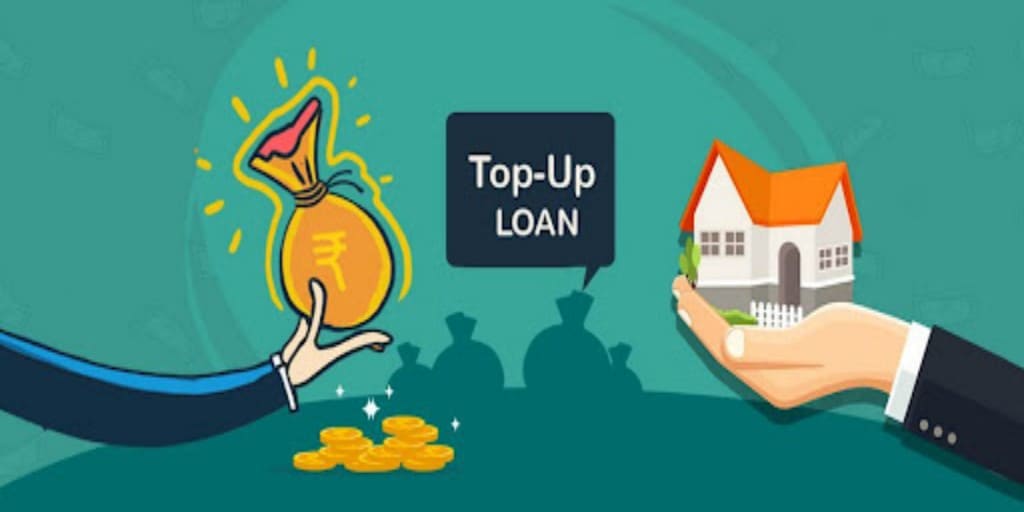Sometimes navigating financial needs requires more flexibility than what a typical loan offers. In such an instance, a top-up loan might be useful as a suitable alternative, enabling you to borrow extra money on top of an existing loan. For those seeking to finance upgrades to their homes, handle unforeseen needs, or consolidate debt, a top-up loan can provide a hassle-free means of accessing more funds without having to apply for a new loan. But before you get started, you must comprehend the main features of top-up loans.
In this blog, we will delve into the world of top up loan and explore the 5 essential things you need to know to make an informed borrowing decision.
What is Top Up Loan?

A top up loan is an additional borrowing facility offered by financial institutions to existing loan borrowers. It allows borrowers to obtain additional funds on top of their existing loan amount without the need to apply for a separate loan. The eligibility for a top-up loan is typically based on factors such as the borrower’s repayment track record, creditworthiness, and the outstanding amount of the existing loan.
The interest rates and repayment terms for top-up loans are usually aligned with the terms of the existing loan. This type of loan provides borrowers with convenience and flexibility in accessing additional funds for various purposes, such as home renovation, education expenses, or managing unforeseen financial needs.

What is the Benefit of a Top Up Loan?
Features and benefits of a top-up loan include:
- Convenience: A top-up loan offers convenience by allowing borrowers to access additional funds without the need for a separate loan application process. It simplifies the borrowing process, as borrowers can leverage their existing loan relationship with the lender.
- Lower Interest Rates: Top-up loans typically come with lower interest rates compared to other types of loans, such as personal loans or credit cards. This makes them a cost-effective option for borrowers who need additional funds.
- Flexible Use of Funds: Borrowers have the freedom to utilize the funds from a top-up loan for various purposes. Whether it’s home improvements, education expenses, debt consolidation, or any other financial need, the choice is yours.
- Extended Loan Tenure: The repayment tenure for a top-up loan is usually aligned with the remaining tenure of the existing loan. This allows borrowers to spread out the repayment over a longer period, reducing the burden of monthly installments.
- Quick Processing: Since the borrower already has an existing relationship with the lender, the processing time for a top-up loan is often faster compared to applying for a new loan. This ensures quicker access to the funds when needed.
- Potential Tax Benefits: In certain cases, the interest paid on a top-up loan may be eligible for tax deductions, especially if the borrowed amount is used for home improvement or renovation purposes.
- Consolidation of Debt: A top-up loan can be a useful tool for consolidating higher-interest debts, such as credit card balances or personal loans. By combining multiple debts into a single loan with a lower interest rate, borrowers can streamline their repayments and potentially save on interest charges.
- Enhanced Financial Flexibility: Access to additional funds through a top-up loan provides borrowers with greater financial flexibility. It can help manage unexpected expenses, bridge financial gaps, or seize opportunities without disrupting their existing financial plans.
Also, read Which one to prefer- Top-Up Loans or Personal Loan
Top Up Loan: 5 Essential Things You Need to Know
- Understanding Top Up Loans: A top-up loan is an additional borrowing facility provided by financial institutions to existing loan borrowers. It allows you to borrow additional funds on top of your existing loan, usually at an interest rate comparable to the original loan. This option eliminates the need to apply for a separate loan, making it a convenient choice for meeting your evolving financial requirements.
- Eligibility Criteria and Documentation: To qualify for a top-up loan, you typically need to have an existing loan with a good repayment track record. Financial institutions consider factors such as your credit score, income stability, and the outstanding amount of your existing loan. The documentation required may include income proof, bank statements, and the loan account statement. Understanding the eligibility criteria and gathering the necessary documents are essential steps in the top-up loan application process.
- Loan Amount and Tenure: The loan amount you can avail of through a top-up loan depends on the outstanding principal amount of your existing loan and the lender’s policies. The tenure for repayment is usually aligned with the remaining tenure of your existing loan. It is important to evaluate your financial needs and determine the appropriate loan amount and tenure that suits your repayment capacity.
- Interest Rates and Charges: Top-up loans generally have competitive interest rates compared to personal loans. However, it is crucial to compare interest rates offered by different lenders and consider any processing fees or other charges associated with the loan. By doing thorough research and comparing offers, you can secure the most favorable terms for your top-up loan.
- Utilizing the Funds Wisely: One of the key advantages of a top-up loan is the freedom to utilize the funds for various purposes. Whether it’s home renovation, consolidating higher-interest debts, funding education expenses, or covering medical bills, the choice is yours. However, it’s essential to exercise responsible financial decision-making and use the funds wisely to achieve your goals without compromising your financial stability.
Eligibility Criteria for Top up Loan

To be eligible for a top up loan, certain criteria must be met:
- CIBIL Score: Having a good credit score of 750 and above is crucial as it allows individuals to reduce their repayment burden and secure the best deals from lenders.
- Income: Whether salaried or self-employed, applicants must have a stable source of income.
- Repayment Record: Maintaining a good loan repayment record significantly increases the chances of getting loan approvals easily. It is important to pay the EMIs on time, whether for an existing home loan or personal loan, to establish eligibility.
- Existing Loan: Securing a top-up loan requires having an existing loan.
Documents Required for Top up Loan

When applying for a top-up loan, the following documents are typically required:
- Employee ID Card: This card serves as identification and confirms employment status.
- Identification Documents: Valid identification documents such as an Aadhaar card, PAN card, passport, or voter ID card are needed for verification purposes.
- Salary Slips: Recent salary slips act as proof of income and employment.
- Bank Account Statement: Providing a bank account statement helps in assessing the financial history and stability of the applicant.
By ensuring that you meet the eligibility criteria and have the necessary documents, you can increase your chances of successfully obtaining a top-up loan.
Conclusion
Understanding the principal features of a top-up loan is crucial when evaluating additional borrowing alternatives. Borrowers can make wise financial decisions if they are aware of the advantages of top-up loans, which include flexible usage of funds, reduced interest rates, and simple access to funds. To guarantee a seamless application procedure, it’s critical to understand the eligibility conditions and paperwork needs. Borrowers can meet their varied financial needs by taking advantage of this practical financial tool by learning about the features and advantages of top-up loans.
To make the best choice for your financial well-being, don’t forget to evaluate offers, determine your ability to repay debt, and speak with financial experts. Top-up loans can be an invaluable tool for reaching your financial objectives if you have the proper information and give them significant thought.
Frequently Asked Questions-
My bank does not offer a top-up loan. Can I apply for a top-up loan from another bank?
If your current bank does not provide a top-up loan or declines your request for such a facility, you have the option to transfer your personal loan to another lender using the personal loan balance transfer facility. This allows you to move your loan to a different lender and simultaneously avail a top-up loan along with it.
Can I apply for a top-up loan if I have already availed multiple loans?
Yes, you can still apply for a top-up loan despite having multiple existing loans. However, approval will depend on factors like your repayment capacity and creditworthiness. It's important to consider your overall debt burden and evaluate if taking on a top-up loan aligns with your financial situation.
Can I foreclose my Top Up loan?
Yes, borrowers generally have the option to foreclose their top-up loan, allowing them to repay the loan before the scheduled tenure and save on interest payments. However, specific terms and conditions, including any applicable charges, may vary depending on the lender.
